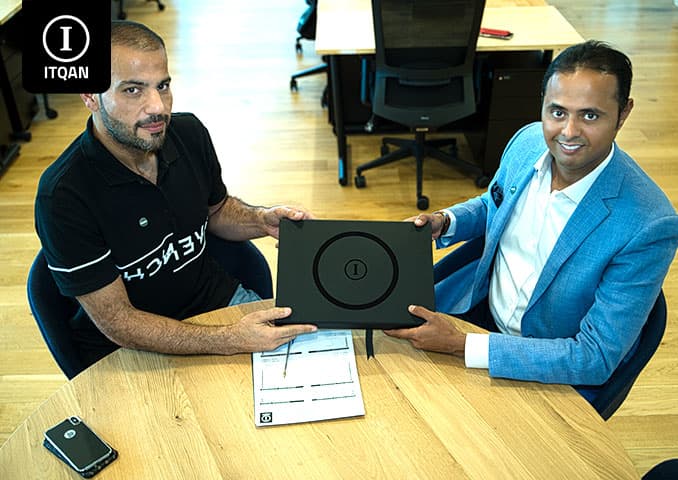Dubai is one of the world’s leading investment destinations thanks to its unique business environment and strategic location that connects East and West. If you are thinking of opening a business in this vibrant city, understanding how to open a company in Dubai is an essential step towards success in the UAE market. With its economic and regulatory advantages, Dubai is an ideal place to start a business, but it is essential to be aware of the procedures and requirements involved.
How to open a company in Dubai is an important topic for investors and entrepreneurs who are looking to take advantage of the great economic opportunities that the city offers. By following precise steps and taking into account global and local economic trends, you can facilitate the process of establishing your company and ensure compliance with all relevant laws and regulations.

How to open a company in Dubai
Opening a company in Dubai can be an important strategic step towards achieving success in the global business environment. Dubai offers an advanced business environment and many advantages, but there are specific steps that must be followed to ensure that the company is properly established. Here is how to open a company in Dubai:
- Determine the type of company and business activity: The first step in how to open a company in Dubai is to determine the type of legal entity that is appropriate for your business activity. It can be a limited liability company (LLC), a joint stock company, a branch of a foreign company, or even a sole proprietorship. Choosing the type of company affects the ownership structure, responsibilities, and registration requirements.
- Choosing a company location: Choose a company location based on the type of business you intend to conduct. You can choose between free zones, which offer full foreign ownership and tax exemptions, or non-free zones, which may require a local partner to own 51% of the shares.
- Prepare the required documents: Prepare the basic documents required for company registration. Typical documents include the partners’ passports, the office lease, a business plan, and the articles of association. Make sure that all documents are complete and correct to avoid any delays in the registration process.
- Applying for a trade license: Apply for a trade license from the Department of Economic Development (DED) if you are in a non-free zone, or from the responsible authority in the free zone if you are in a free zone. The application usually involves submitting the required documents and paying the specified fees.
- Registering the company and obtaining the necessary permits: Once you have obtained the trade license, register the company with the relevant government agencies, such as the Land Department for real estate licenses, or the Ministry of Human Resources and Emiratisation to register as an employer. You may also need additional permits depending on the type of business activity.
- Set up facilities and staffing: Set up your office or corporate headquarters based on your business needs. Furnish and equip it with the necessary equipment, and begin the hiring process to bring in the talent needed to run the company effectively.
- Open a bank account: Open a business bank account in the name of the company in one of the approved banks in Dubai. This will enable you to manage financial operations and facilitate business transactions.
- Complete work visa procedures: Submit the necessary work visa and residency applications for employees, as per Dubai labor laws. Ensure compliance with all requirements to obtain visas smoothly.
How to open a company in Dubai requires following these steps carefully to ensure a smooth incorporation process and success in the market. With proper planning and compliance with legal requirements, you can take advantage of the opportunities available in Dubai and boost your company’s growth in a dynamic business environment.
Types of companies available in Dubai
Here is a table showing the types of companies available in Dubai, with basic details about each type:
| Company Type | Description | Ownership | Permitted Activities |
|---|---|---|---|
| Limited Liability Company (LLC) | A company consisting of one or more partners and is considered to have limited liability with respect to the shareholders. | 100% foreign ownership in some free zones, or a local partner in non-free zones. | Most commercial and service activities. |
| Private Joint Stock Company | A company consisting of a group of shareholders whose liability is limited to the amount of their shares. | 100% foreign ownership in some free zones, or a local partner in non-free zones. | Commercial, industrial and service activities. |
| Sole Proprietorship | A company owned by one individual who is responsible for all the obligations of the company. | Sole proprietorship. | Commercial and service activities. |
| Private Limited Liability Company | A special type of limited liability company, it may have more flexibility in arrangements. | 100% foreign ownership in some free zones, or a local partner in non-free zones. | Commercial and industrial activities. |
| Branch of a foreign company | A branch of a company located outside the UAE, operating under the same trade name and activity. | 100% foreign ownership. | Business activities that are licensed under local conditions. |
| Cooperative company | A company owned by a group of individuals working to achieve common interests. | Joint ownership among members. | Business activities may include cooperatives and community activities. |
| profit making company | A company that aims to make a profit and distribute profits among shareholders. | 100% foreign ownership in some free zones, or a local partner in non-free zones. | Most commercial and service activities. |
There may be other types of companies based on activity and organizational structure, such as holding companies or special purpose companies.
Fees and costs associated with opening a company in Dubai
Opening a company in Dubai requires paying a set of fees and costs that may vary depending on the type of company and the type of business activity. In general, the costs associated with opening a company in Dubai include:
- Registration Fees: Fees for registering the company with the Department of Economic Development or the responsible authority in the free zone. Includes application and document processing fees.
- Business License Fee: The cost of obtaining a business license that authorizes you to practice the specified business activity.
- Office lease fee: The cost of renting or reserving office space. Fees may include an annual lease or an upfront payment.
- Special License Fees: If you require special licenses such as business licenses, health or environmental licenses, you will need to pay additional fees.
- Notarization and translation costs: Fees for notarizing and translating official documents if necessary, such as translating legal documents or articles of association.
- Insurance Fees: In some cases, you may need hazard insurance, building insurance, or equipment insurance.
- Administrative Services Fees: Includes costs for legal consulting services, accounting services, or any other administrative services that may be necessary.
- Recruitment and Visa Fees: Costs of issuing work and residence visas for founders and employees.
- License Renewal Fees: Annual fees for renewing a commercial license and renewing other licenses.
- Bank Account Setup Costs: Some banks may charge a fee to set up a business bank account for a company.
Basic documents for company formation in Dubai
When setting up a company in Dubai , you usually need to submit a set of basic documents to successfully complete the incorporation process. Here is a list of the basic documents you may need:
- License Application Form: Contains company information, its objectives, details of shareholders and directors.
- Memorandum of Association and Articles of Association: Contains the company’s structure, objectives and internal procedures.
- Passport copies of shareholders and directors: Colour copies of passports of all shareholders and directors.
- Proof of Address: This could be an electricity bill or a lease agreement that proves the company’s address.
- Good Standing Certificate: For shareholders and directors to confirm their good standing and conduct.
- Lease Agreement or Property Ownership Document: If the company will be established in the rented location.
- Building Permit: If the company intends to build its own building.
- Certified Financial Report: This may be required for some types of companies to provide an assessment of the financial position.
- Power of Attorney: If there is someone representing the company during legal proceedings.
- Professional licenses specific to the company’s activity: such as a commercial license, an industrial license, a license for professional services, etc.
In conclusion of our article on how to open a company in Dubai , it can be said that Dubai remains one of the most attractive destinations for investment and business in the world thanks to its advanced business environment and the facilities it provides to investors. Understanding how to open a company in Dubai helps speed up the establishment process and ensure its compliance with all legal and administrative requirements.
In this article, we have reviewed the basic steps for establishing a company in Dubai, starting from determining the type of company and business activity, to preparing the required documents and submitting the necessary applications. We have also addressed the importance of choosing the right location, whether in free zones or non-free zones, as each zone offers a set of advantages and facilities that can contribute to the success of the business.
By adhering to the method of opening a company in Dubai and following the necessary steps carefully, investors and entrepreneurs can benefit from the growth and expansion opportunities that Dubai offers. Good planning and careful preparation can facilitate the establishment process and make it a positive and successful experience.
The most important frequently asked questions about opening a company in Dubai
What are the procedures for obtaining work visas for employees?
Work and residency visa applications for employees must be submitted through the relevant government agencies, such as the Ministry of Human Resources and Emiratisation.
How to open a business bank account in Dubai?
Opening a bank account requires submitting basic documents such as a trade license, passports, and a lease agreement. Requirements vary from bank to bank.
What are the regulations regarding employment of workers in Dubai?
You must comply with local laws regarding employment, including working conditions, salaries, and social insurance.
Does the company need a physical office?
Yes, most businesses need a physical office to meet registration and licensing requirements, as well as provide a legal address for the company.
How can I apply for a commercial license?
The application can be submitted through the Department of Economic Development (DED) if you are in a non-free zone, or through the responsible authority in the free zone.

















